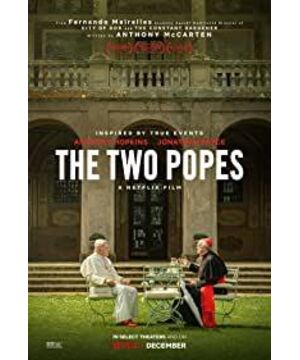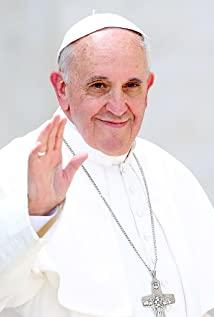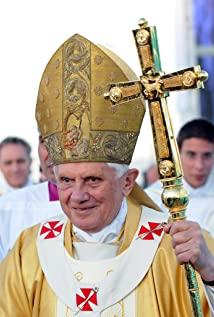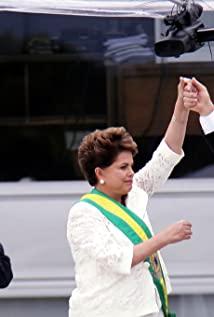The protagonist in "The Pope's Succession", the new Pope, is a very attractive person, and the key to the film's likability lies in having a likable protagonist. From this point of view, although the subject matter is completely different, it is actually very similar to Pride and Prejudice. There are almost never such charismatic characters in Chinese movies. This shows both our unwillingness or inability to talk about elites (unwillingness and inability to complement each other, such as our sing-song savior while saying that history is made by the masses) and our deeply ingrained culture of collectivism.
One of my favorite things about the structure of the story is that the old Pope finally said that he had never been able to feel the world created by God, so he could only bury his head in the book. This suddenly revealed the deep root of all the contradictions between the old and new popes, and made all their arguments very reasonable.
Recently I happened to be reading Azolin's "Famous Decline". This book not only moved me, but also made me realize that I hadn't read a book that simply wrote about the things, feelings, and moods in real life in a long time. This is the result of an unconscious choice. Like the old Pope, I am not very good at feeling life itself, so I can only bury my head in the pile of books. And because of the lack of sensibility, when reading, it will also tend to those books that are highly speculative, or simply full of wonders.
This film reminds me of something I've long forgotten. There were very few bookstores where I grew up, and most of them only sold good books such as teaching aids and success studies. I stumbled across a theology book one day in a bookstore, and it held a strange fascination for me for a long time. This is certainly not a so-called summoning. Years of cramming atheistic education made me face that book like Sabina in The Unbearable Lightness of Life who hid in a church on a hill to escape the ubiquitous loudspeakers, the knowledge (and admonitions) ) was added to the brilliance of beauty. Obviously, part of the beauty here comes from taboo - if they tell me it's all wrong, then it must be right, or even more so.
Aside from taboos and resistance to taboos, religious knowledge itself is quite attractive to me. This attraction comes from two basic positions or realizations: first, I have no religious beliefs; second, I don't think people with beliefs are less rational than I am. So I always try to understand why other people believe in God. So far, what I have heard and seen, the sayings and stories in the two Christianity have impressed me the most.
First, a man who fell into the water was praying for God's salvation, during which several lifeboats were rejected by him because he had to wait for God's help. After he drowned and asked God why he didn't save him, God said but I already sent a few boats to save you.
Second, some people think that believing in God means giving up on yourself (that's what I think), but the problem is that if you don't believe in God you're really giving up on yourself - giving yourself over to Satan and desire.
There is a similar wisdom in this film: the new Pope said that God, like all things, is changeable, and the old Pope retorted that if that is the case, how do we find God? The new pope said on the journey. It's a wonderful statement, not only in terms of verbal tact, but this tact comes from knowing about the other side that even we can understand.
But anyway, I'm not a believer. A movie of course can't change that (I actually made the mistake of the drowning man when I said that, but I insisted that I would be like this even if I drowned, so I made the mistake of thinking I'm in control of my life if I don't believe in God mistake). So this movie touched me more in other places.
The new Pope confessed that he did not directly oppose the dictatorship as his friends did when he was young. Of course, it is also stated in the movie that he did so because he felt that it would save more people. This choice is not difficult to understand, but I thought of an idea from a long time ago. When I was a child, I saw photos of patriotic overseas Chinese who raised money overseas during the Anti-Japanese War in history books, and I thought it was so unfair—it was so unfair to those who shed their blood on the battlefield, but no one remembers them anymore. .
In another place, the new pope gave up his beloved fiancée at a young age in order to serve God, and someone comforted him by saying something wonderful: You will have to love her in other ways from now on. It is also a dilemma between faith and relatives. After Li Shutong became a monk, he never saw his wife. Many people praised Li for his firm belief, but I felt very uncomfortable from the first time I heard this statement.
Writing this, I understand the real reason I like this film: it's a story about the church, but it's also a story about humanity.
View more about The Two Popes reviews











